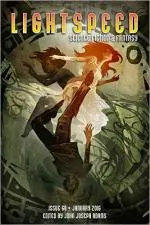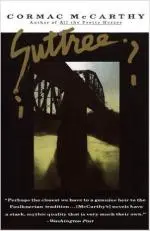My professional writing career began as a book reviewer for Time Warner Publications. To qualify for the job I had to review a pot boiler about sleeping your way to the top in Hollywood. I know, right? It had lines like, “Please Tom. I can’t wait any more,” and “His swollen thickness was drawing pleasures out of her she had never imagined existed.” Every sex scene was more or less the same, a kind of caricature of itself. Cue “swollen thickness.” I, um, had a ball with the review and it got me the job and it made me think about sex scenes. A lot.
The sex scenes in that book were the best things about it, and not in a good way. They didn’t seem to serve the story or the characters. Sex scenes can be gratuitous good (the best thing in your book) or gratuitous bad (the worst). Either way it's lose-lose. By that I mean, even if your (worthy) goal with sex scenes is to titillate, swollen thicknesses aren’t going to do it. Why? Because they leave nothing to the imagination. Friction is only part of it. Most sex is imaginary. Really. It takes place in our heads.
So unless your characters are blow-up dolls or boyfriend pillows, the phrase “just physical” is a contradiction in terms, whether the sex takes place in a night club toilet-stall or on the office copier. Human desire is embodied, and embodied implies consciousness. So we may crave release, but from what? And connection, okay, but with whom? And why today? Why on top of the copier, this copier, today? To begin to answer any one of those questions in a sex scene set between Marge and Derek on the third floor Xerox machine the day before Marge’s deployment to Afghanistan is to take the first step toward honesty, urgency and truth, a place where “swollen thicknesses” start to ring laughingly false. And then just false.
So sex scenes ideally escalate the action, not stall it. We want our story, and our characters, to be in a different place at the end of the scene than they were at the beginning, or the sex doesn’t feel urgent, which means it isn't earned. And unearned is hard to swallow.
Some rules of thumb? Keep your character’s internal mechanisms going along with their external ones. Our thoughts race during moments of intimacy. We feel things, we think things, sometimes irrational things—thoughts that bubble to the surface, distracting and insistent. Secondly, try not to force your characters, during moments of intimacy, to act out of character. We are what we are, and character traits tend to be more pronounced the more naked we feel. Third, keep the external world in earshot. Sex is grounded. It takes place in bed, on a photocopier, beneath a waterfall. Birds sing, rocks loosen, water gets up your nose, a doe’s ears flash white between branches. Be true to the story, and as night follows day, you can be false to no man, woman or boyfriend pillow. Finally, let no writer tear asunder what fiction has sought to bring together. We tend to rush through our sex scenes like we rush through our death scenes. “Aaaah!” The end. But sex and death have weight. They take time, have beginnings (before the scene), middles and ends (beyond the scene). They should come from the story, in other words, not all over it.
![]() 1. “Guts: A Story by Saint Gut-Free” ('Haunted' by Chuck Palahniuk)
1. “Guts: A Story by Saint Gut-Free” ('Haunted' by Chuck Palahniuk)
One minute, I’m settling on the pool bottom, and the sky is wavy, light blue through eight feet of water above my head. The world is silent except for the heartbeat in my ears. My yellow striped swim trunks are looped around my neck for safe keeping, just in case a friend, a neighbor, anybody shows up to ask why I skipped football practice. The steady suck of the pool inlet hole is lapping at me, and I’m grinding my skinny white ass around on that feeling.
One minute, I’ve got enough air, and my dick’s in my hand. My folks are gone at their work and my sister’s got ballet. Nobody’s supposed to be at home for hours.
My hand brings me right to getting off, and I stop. I swim up to catch another big breath. I dive down and settle on the bottom.
I do this again and again….
Because steady suck.
It’s those details about the sky and the “inlet hole” and the yellow swimming trunks that make you totally trust this scene in space and time. It happened, right? And I guarantee that half of those hordes who supposedly fainted or fled from Palahniuk’s reading of this notorious story were genuinely sickened and the other half would have given their left nipple to have thought of it first. Because here’s the thing. It’s totally bogus, but that bogusness is so drowning in details that steadily suck that it becomes entirely real. Steadily suckingly real. Sex scenes, even sex with an inlet hole, traffic in conflict and the central conflict in Palahniuk’s story is between the ‘I’ who hates himself and the author who loves him. This tension, in the right hands, can be used to great tragicomic effect. Palahniuk’s stock in trade is to put his human characters in the most horrifically mundane—steadily sucking—situation he can think of and set a snarlingly inhumane narrator on their gutless ass. The effect is kind of transcendent, to be honest, but try telling the characters that. Try telling them they’re caught in a metafictional battle for their souls and they’d throw the book at you. If they weren’t too busy fighting for their lives.
![]() 2. “Secondhand Bodies” by Jy Yang (in Lightspeed Magazine)
2. “Secondhand Bodies” by Jy Yang (in Lightspeed Magazine)
She doesn’t even look surprised. The afternoon sun backlights her hair like a halo. I hold my hands out.
“Here.”
Maryam walks around my body with a faun’s gait. There is wonder in her eyes. Wonder and joy. I feel vindicated for bringing her back here.
One tentative hand stretches out and hesitates millimetres from the skin of my arm. My hairs stand and my flesh shivers as those shy fingers of her ghost over me. “It’s okay to touch," I say.
Her fingers land, warm and radiant against my white skin. She presses once into the yielding flesh before her fingers depart, and move to my shoulder, my chest. Heat curls deep in my belly and I bite my lower lip.
Her hand moves to my mid-section, which sinks under her touch She pushes gently on the fat, feeling its softness, its generous give. “This is it? This is why you want to change your body?”
I nod. A small sound comes out of her, somewhere between a sigh and a laugh. “The doctor said it was something small, but this—“ She looks me straight in the eye, and it feels like it’s for the first time. “This I can live with.”
Her gaze is hypnotic. I gently close one hand over hers and slide it downwards, toward the waiting ocean.
Because waiting ocean.
Sex scenes don’t have to be hot. But when they are it’s usually because of a kind of consensual energy transfer between the author, reader, and characters. And words like wet and throbbing rarely do the trick. Scenes that burn with desire work because they’re about the way we rush toward, and try to hold ourselves back from some kind of release, some oceanic truth that intimacy will reveal. I first came across this body-swap story while perusing Lightspeed Magazine and I was blown away by the way Yang manages to convey both the physical and the psychological reality of what is happening through simple tools of trade—syntax, punctuation, word choice. “Faun,” and “wonder” are the lexicon of fantasy, an imagined innocence, which is where most sexual desire takes place. Agatha’s smug, “vindicated,” consciousness of her desirable “white” skin is destabilized by the dark-skinned Maryam’s circling syntax, the looping phrases interspersed with ambiguous bites of dialogue, the way she hypnotically closes in on her seductress. Like a vertiginous feeding frenzy, this sex scene bodes dangerously unstable, an essential twist in this spiraling tale of bodies, desire, and power.
![]() 3. 'Suttree' by Cormac McCarthy
3. 'Suttree' by Cormac McCarthy
There were no more than a quarteracre of them, a long black rectangle set along the edge of the corn in which by the meagre starlight of late summer he could see the plump forms supine and dormant in spaced rows. He listened. In the distance a dog was yapping and in his keen ears the blind passage of gnats sounded incessantly. He knelt in the rich and steaming earth, his nostril filled with the winey smell of ruptured melons. To steal upon them where they lay, his hand on their warm ripe shapes, his pocketknife open. He lifted one, a pale jade underbelly turning up. He pulled it between his knees and sank the blade of the knife into its nether end. He shucked off the straps of his overalls. His pale shanks kneeling in a pool of denim.
Because watermelons.
Without striking an ironic note, McCarthy has so much fun with this scene, that when he finally brings it to its inevitable and violent culmination, it’s you and not the farmer standing there wishing you could unpull that trigger (gun’s going off), take back that “skeltering lead,” shot of judgment and guilt, and undo what's been done. It’s not just that McCarthy creates a point of view that is so convincingly capable of sexualising a melon (“plump forms supine,” “pale jade underbelly”… hot), not just the undercurrent of violence, but it’s the gnats, man. It’s the gnats. Because the real action in sex scenes is not in what the body parts are doing but what’s going on in the character’s head. The more engaged their bodies, the more keen their senses are to wander, to race, to doubt, to listen. The best sex scenes are embodied— the more intense our character’s desire to transcend the physical the more it presses in on them. Bzzzzz.
![]() 4. “Brokeback Mountain” by Annie Proulx
4. “Brokeback Mountain” by Annie Proulx
…nothing he’d done before, but no instruction manual needed. They went at it in silence, except for a few sharp intakes of breath and Jack’s choked, “gun’s goin off,” then out, down and asleep.
Ennis woke in red dawn with his pants around his knees, a top-grade headache, and Jack butted against him; without saying anything about it, both knew how it would go for the rest of the summer, sheep be damned.
Because cowboys.
Jack’s orgasmic holler is so Jack, right? And Ennis’s denial is just so tragically Ennis. Proulx nails this scene, from the stark urgency of the coupling to Jack’s spooning and Ennis’s pants-down vulnerability, in his morning-after suspicion that the sheep’s damnation will be closely tied to their own (Jack “butted” against him). Tools of the trade. But what also makes this resonate at such a shatteringly human level is how it connects to two moment that have gone immediately before—Jack getting his perv on Ennis at bath time, and Ennis, sitting with Jack by the fire, feeling for the first time ever, a place for himself in the immense scheme of things, a joy so intense that, deny it as he may, he could “paw the white right out of the moon.”
In other words, the sex scene between Jack and Ennis is not only totally in character, it belongs in the story and occurs at exactly the right place in exactly the right way to escalate the action toward a conclusion that the reader both desires and fears. And that’s the definition of a page turner.
![]() 5. 'The Days of Abandonment' by Elena Ferrante
5. 'The Days of Abandonment' by Elena Ferrante
Again I felt like crying, I clenched my teeth. I didn’t know what to do, I didn’t want to burst into tears again, I reacted by moving my pelvis, shaking my head, moaning, murmuring:
“You want me, it’s true that you want me, tell me…”
Cerrano nodded yes, pushed me onto my side, pulled down my underpants. I have to leave, I thought. Now what I wanted to know I knew. I am still attractive to me. Mario took everything but not me, not my person, not my beautiful charming mask. That’s enough with my ass. He was biting my buttocks, licking me.
“Not my ass,” I said, moving his fingers away.
Because Ferrante.
Because of how the more desired Olga needs to feel, the more abandoned she is. Because of how Olga can’t shut down her own (stream of) consciousness despite her desperation to escape those infernal comma splices, the ellipses and tense shifts. Because of how, in the face of the world’s abandonment we musn't abandon ourselves.
And poor Cerrano. Even if the narrator doesn't like him very much, Ferrante does, so she can't let him go. That tension becomes a part of the story, and it needs him.
Because there is never a time when your characters need you more than when they’re buck naked on all fours, or on their backs, or tucked up in a sleeping bag with a broken rodeo-stud. Or at the bottom of a swimming pool. Don’t leave them now. If you love your characters, and especially if your narrator does not, if you really love them, you will follow them to the edge of the melon patch and beyond. You will love them with their pants down, teethmarks on their ass, and you will love their shame because it will be your shame, and their rage will be yours, their guns will go off in your own head, and your pulse will quicken with theirs, and you, too, will paw at the moon, and the pearls that obscure the sun, and your ears too, will buzz with the swollen thickness of gnats.

About the author
J.S. Breukelaar is the Shirley Jackson Award nominated author of Collision: Stories, and a finalist for the Aurealis, Ladies of Horror Fiction (LOHF), and Australian Shadows Awards. Her previous novels are Aletheia (an Aurealis Award nominee), and American Monster (Wonderland Award Finalist). She has published stories, poems and essays in publications such as Black Static, Gamut, Unnerving, Lightspeed, Fantasy Magazine, Lamplight, Juked, and others including Women Writing the Weird, Tiny Nightmares and Years Best Horror and Fantasy, 2019. Her new novel, The Bridge, will be released in early 2021, as well as Turning of the Seasons, a collaborative flash fiction collection with Sebastien Doubinsky. A columnist and regular instructor of Weird Writing at LitReactor.com, she has a PhD in Creative Writing and Film studies and lives in Sydney, Australia where she teaches at the University of Western Sydney, and in the University of Sydney extension programs. You can also find her at www.thelivingsuitcase.com and twitter.com/jsbreukelaar.
 1. “Guts: A Story by Saint Gut-Free” ('Haunted' by Chuck Palahniuk)
1. “Guts: A Story by Saint Gut-Free” ('Haunted' by Chuck Palahniuk)
 2. “Secondhand Bodies” by Jy Yang (in Lightspeed Magazine)
2. “Secondhand Bodies” by Jy Yang (in Lightspeed Magazine)
 3. 'Suttree' by Cormac McCarthy
3. 'Suttree' by Cormac McCarthy
 4. “Brokeback Mountain” by Annie Proulx
4. “Brokeback Mountain” by Annie Proulx
 5. 'The Days of Abandonment' by Elena Ferrante
5. 'The Days of Abandonment' by Elena Ferrante








